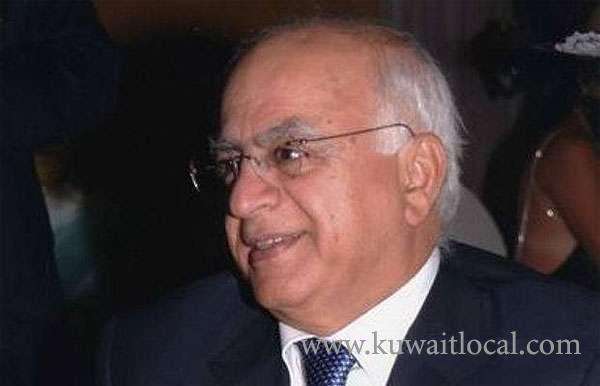Latest News
- Court Sentences Bank Employee To 5 Years For Embezzling 100,000...
- Fake ‘Sheikh’ Sentenced To 2-yr As Court Overturns Verdict
- Justice Ministry New Service On The Sahel App
- Ministry Probes 68 Cases Of Illegal Charity, Funds Collection
- Globally, Kuwait Is Among The Top Consumers Of Incense And Oud O...
- Decrease Seen In Foreign Investment
- Kuwait Customs Seized 2 Containers Laden With Tobacco At Shuwaik...
- Unpaid Salaries, Accountant Beaten Up By Workers
- The Sahel App Was Not Hacked, A Spokesman Claims
- Four Expats Arrested For Stealing Copper Cables Worth 60,000 Din...
- Indian National Died In Abdalli Car Accident
- Work Permits And Foreign Worker Transfers Are Amended By PAM
Adoption - Forgotten Issue

The issue of foundlings – people with unknown parents – is considered one of the most unsettled issues in the Muslim world. No one wants to address their case or their situation and they are often treated inhumanely for no fault of theirs.
They feel they are being unwanted, deprived by a society that doesn’t welcome them. They have not been able to walk shoulder to shoulder with others, which is but natural, unlike other countries of the world, even government agencies do not recognize their status and call them orphans although they are not.
One may say calling them orphans is better than putting on them the tag of ‘foundlings’ which is very much true, but it is a false name. They are not treated as orphans but as “nothing.” The laws do not allow the adoption of foundlings nor provide them a sound environment, nor facilitate their involvement in society.
In spite of the obstacles placed by the government authorities in Kuwait on the process of adoption which is called locally ‘embracing’ there are some who call for facilitating this process to put an enduring radical solution to this tragedy. Many families seek to adopt and embrace ‘children’ with unknown parents and seek to integrate them into society later and help them get rid of the feeling of ‘difference’.
The number of ‘children’ abandoned by parents is increasing, because the Kuwaiti law, which if more than 50 years old, forbids the child to live with his/her mother if she is identified later because the father remains unknown but is forced to live within the walls of the ministry which virtually depicts a prison until the child grows into adulthood (at the age of 21).
The male child is then allowed to breathe the air of the ‘free world’ and look for housing, work and other rights although the grown up child has no specific status and no affiliation to any of the components of society, without a title, and I do not know what happens with female child, and their status is inevitably more pathetic.
The law has made it imperative that the foster family be Kuwaiti, Muslim and have a good reputation and none of its members have complains of mental and psychological disorders in addition to financial ability and permanent residence to facilitate the follow-up of the adopted child.
The child whose father is unknown is granted the Kuwaiti nationality and the foster family is granted a child care allowance to confirm the child’s belonging to the state and its right to monitor its growth and receive him back if the foster family fails to provide the necessary requirements.
In spite of all the care provided to the adopted child, the social view is tinted with a kind of inferiority complex and this remains unchanged, because the community’s ignorance of their situation and rejection of the foundlings by the society.
In view of this situation, we can say they are being punished for a ‘crime’ they have nothing to do with. Adoption is often tied to the infants who do not know the reality of their situation and the majority of them remain without being ‘embraced’. These are the ones who suffer more than the others.
This happens despite successful adoption stories. Of the 600 cases currently adopted, the families are not allowed to give their names to the adopted child neither to inherit them at all. The nationality granted to them is a specific article that makes it easier to identify them, and this includes ‘ethnic’ discrimination against them and contradictory to what the government claims.
The authorities also do not permit the DNA test or fingerprints to identify their relatives, therefore, the government is required to put in place a law compatible with the development of society, and facilitate adoption and cast away fears about racism or sectarianism.
Trending News
-
 Eid Al Fitr 2024: Crescent Moon Not Sighted In Sau...
08 April 2024
Eid Al Fitr 2024: Crescent Moon Not Sighted In Sau...
08 April 2024 -
 Kuwait Implements Home Biometrics Services Ahead O...
14 April 2024
Kuwait Implements Home Biometrics Services Ahead O...
14 April 2024 -
 When Will Eid Al Fitr 2024 Take Place In Qatar, Ba...
08 April 2024
When Will Eid Al Fitr 2024 Take Place In Qatar, Ba...
08 April 2024 -
 On Sunday, The Meteorological Department Warns Of...
07 April 2024
On Sunday, The Meteorological Department Warns Of...
07 April 2024 -
 Kuwait Airways Provides Update On Flight Schedule...
14 April 2024
Kuwait Airways Provides Update On Flight Schedule...
14 April 2024 -
 Kuwait Airways Introduces Convenient Home Luggage...
15 April 2024
Kuwait Airways Introduces Convenient Home Luggage...
15 April 2024 -
 Gathering For Eid Al-Fitr Prayers: Kuwaiti Citizen...
10 April 2024
Gathering For Eid Al-Fitr Prayers: Kuwaiti Citizen...
10 April 2024 -
 Winners Of Kuwait National Assembly 2024 Elections
06 April 2024
Winners Of Kuwait National Assembly 2024 Elections
06 April 2024 -
 An Egyptian Expat Dies At Kuwait's Airport
11 April 2024
An Egyptian Expat Dies At Kuwait's Airport
11 April 2024 -
 Bay Zero Water Park Kuwait: Summer Season Opens Ei...
11 April 2024
Bay Zero Water Park Kuwait: Summer Season Opens Ei...
11 April 2024












Comments Post Comment